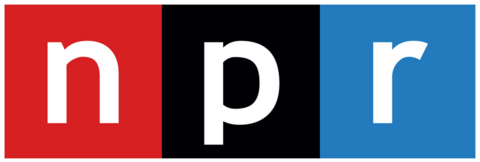What is banking?
Opening a bank account is a great first step toward managing your finances. Banks are a convenient and safe way to store excess cash and grow your money. When you open up an account at a bank, you can easily deposit and withdraw cash, or set up direct deposits to receive a paycheck. In some bank accounts, the bank pays you an interest rate, allowing you to grow your cash over time.
Banks offer two primary types of accounts to students — checking accounts and saving accounts.
Checking accounts are best if you would like to quickly access your money via ATM machines. You can store your money in a checking account and access it at any time, and withdraw as often as you would like. You can also link a debit card to a checking account, or order checks (more on this later!)
Savings accounts are best if you are looking to set money aside to save. Savings accounts limit withdrawals, so you can resist temptation to spend. And they offer you a higher interest rate, so your money will grow faster.
Having both accounts can help you develop good savings habits, while still allowing you easy access to your money.
Many students choose to open both checking and savings accounts, so that they can differentiate between spendable money and money meant to be saved. Having both accounts can help you develop good savings habits, while still allowing you easy access to your money.
Choosing a Bank
The first step in setting up your bank account is choosing a bank. Picking the right bank is important, because different banks offer different rates and fees for withdrawing money. Many banks now offer special student accounts, which are meant specifically for college students and often have lower minimums and charge fewer or no service fees.
There are three main types of banks to choose between — local banks, credit unions, or online banks.
Local, or traditional banks are the banks you would recognize from street corners in big cities or small towns. Traditional banks can be big, national chains or small, local banks, but all have a physical location where you can go and meet with a bank employee with any questions you might have about your account.
Credit unions are similar to traditional banks, but often have fewer ATMs or physical locations. Some people prefer credit unions because they usually offer accounts with fewer fees and higher interest rates. Many credit unions (but not all) have a specific membership criteria, like military affiliation or having a certain occupation like teacher or city worker.
Online banks are a newer development in banking, and exist solely online without any physical branches. There is less human interaction, but it is often a convenient option as all services can be performed online. Online banks usually have contracts that allow you to still withdraw money from ATMs without excess fees.
Geography is another important factor when picking a bank. Some banks only offer fee-less withdrawals at their bank’s ATMs. In that case, you would want to make sure that you are signing up for an account at a bank that has an ATM in the city or town where you live. If you choose to open an account at a traditional bank, you also might want to make sure that the bank has a branch in your city.
Some banks that have branches or ATMs in New Haven are Bank of America, Chase, Liberty Bank, New Haven Bank, TD Bank, Santander Bank, Webster Bank, People’s United Bank, and Citizens Bank.
Common banking services
Some common things you can do at your bank beyond just depositing and withdrawing money are: ordering checks, cashing and depositing checks, and placing money orders (should we add loans here?).
What is a check? Paying with paper seems like such an ancient way of doing things, but checks are still used all the time! Most checking accounts come with the ability to order checks, which will come in the form of a checkbook. When you pay someone via check, the money will be withdrawn from your account when they choose to cash the check at their bank (this can sometimes take a while so you have to keep track of uncashed checks in your budget!). Employers often pay via check, which you will then need to cash. You can always cash a check by physically returning it to your bank, but more and more banks are now offering mobile banking apps that allow you to cash your checks by taking a picture with your phone.
On the other hand, a money order can be an even safer way to transfer money, especially if you are trying to send money through the mail. You can buy a money order at any post office or at most grocery stores. It resembles a check, but it is not linked to your bank account — rather, you buy a money order for a certain amount, send it, and then whoever is marked as the recipient can cash it in at a post office or grocery store.
Be sure to check out the resources below for more information about banking and how to open an account.
Receiving international transfers or transferring funds internationally
Many international students receive money transfers to their US bank accounts from their parents overseas. If it is a direct bank to bank transfer typically hefty fees apply on the sender or both sides. This means you will receive less funds to your US account.
You can avoid these fees, by using third party fintech intermediaries, such as Wise (aka. Transferwise), which charge a fraction of the price and deliver funds typically within a similar timeframe.


